Intro
Since my childhood, I always wondered why this song was never composed by Roshan
Near the end of this documentary, several commentators used the phrase “Roshan” to make exactly that pun.
The Meat
This three hour long documentary on three generations of Roshans is slick. It covers the grandfather music director Roshan in the first thirty minutes, then it shifts gears to his two sons Rajesh and Rakesh. In the third segment, it focuses on the superstar Hrithik Roshan. He was named after the famed Bengali movie director Ritwik Ghatak by his Bengali grandmother Ira Moitra. She was the second wife of Roshan Lal Nagrath - a man from Gujranwala (now Pakistan) of (Hindu Brahmin) Punjabi origin.
Act 1: The Patriarch
Roshan Lal Nagrath was a serious music student at Marris College, Lucknow and then became a versatile sarod player under the tutelage of Ustad Allauddin Khan of Maihar. All India Radio Delhi hired Roshan to play esraj - not exactly what he wanted to do in life. He met the Bengali singer Ira Moitra and promptly married her. Then he took a leap of faith wanting to be a music director in Hindi movies. His first movie music was a total flop. Even today Asha Bhosle regrets singing in the movie - she said so in the documentary!
The structure of the documentary is modular. You can watch just the first part with the story of how his grandfather came to become a music director. But, the story starts with the Superstar grandson, Hrithik Roshan listening to the voice of his grandfather singing for the first time in his life. Thereby, it cleverly connects the three generations right when the documentary begins. As a result, it connects the current generation of Indians who know Hrithik well but may not be very familiar with the greatness of Grandfather Roshan.
(Hrithik introduces the documentary).
Roshan Lal Nagrath and wife Ira moved to Bombay (probably) in 1948 according to his son Rakesh. Roshan did not have a place to stay in Bombay. Husn Lal and Bhagat Ram, the successful music director duo at the time, lent Roshan and Ira their garage to stay. That is where their son Rakesh was born in 1949. Rakesh became a street smart bully of the neighborhood while his father Roshan’s musical career took off in the 1950s.
Ameen Sayani gives the intro to this documentary. It turned out to be his last.
(Ameen Sayani speaks about Roshan.)
I would note that the video that goes with it is not right. If you pay attention at this point about 30 seconds into the clip
It is clearly a shot of Calcutta, not Bombay.
Roshan has produced a large body of film songs. I will not list them here.
Act 2: The Sons
Rakesh lacked interest in studies. He failed Class 8. His father put him in a Sainik School (for training soldiers). The School Principal complained to father Roshan about the discipline problem of his son. Roshan was puzzled. He said, “In his earlier school, he used to come in ranked 50 - the last student. Now he is coming out at number 10. It is a great improvement.” The Principal said, “Sir, we only have 10 students per class.” Rakesh was a great fan of Shammi Kapoor so much so that he went to Lafangs Tailors where Shammi Kapoor got his clothes made.
After his father’s death, he was forced to become the bread earner of the family. He struggled as an actor. He was earning meager sums. He decided to produce movies. It did not go financially well. But, eventually his directorial ventures took off.
He then bet his entire wealth on producing and directing the movie Kaho na….pyar hai. It became a family affair. His brother, Rajesh Roshan gave the music. His son, Hrithik became the main character in his first role as a main character. A Superstar was born.
The documentary goes into how Rakesh was shot by a gang. There are some dramatic recreations of the scene but never speaks about the Ali Budesh gang who was responsible behind the shooting.
Act 3: Grandson Superstar Hrithik
Hrithik’s story of his struggle is detailed in some ways. His childhood stutter, his battle with scoliosis as a teenager and his lifelong sensitivity of a sixth finger.
The Lacunae
The film is produced to highlight the family successes. It portrayed the entire family as a series of four men who fought to overcome adversities. It does not say much about the women Roshans in the family about their suffering in the hands of inflexible rigid men with severe smoking and drinking habits. Roshan’s death from a heart attack had something to do with chain smoking. Ditto for Rajesh Roshan’s tongue cancer. It did not dwell on petty things like Hrithik’s failed marriage and affairs. It avoided doing the same about Rakesh’s alleged peccadillos. Similarly, it avoided getting into the question of nepotism. This should not be surprising given that Rakesh Roshan produced the documentary. We got a good glimpse of his palatial house on top of hill - several times - but only where *he* allowed the camera to go.
The Digression
For me, this song from Zindagi Na Milegi Dobara holds a special place. First, because it has a great mixture of Hindi and Spanish in the song. It includes a flamenco style song - half in Spanish - half in Hindi. I like this kind of blend. The fact that the gitanos are originally from India who brought their musical culture has something to do with it. It is a Hindi movie shot (mostly) in Spain - that does not happen frequently. The male singers in the scene are the actual actors singing - not a playback - another unusual feature for a Hindi movie.
This is a version with all Spanish/Hindi subtitles
(not the best quality video)
As you can see, it took them a while to make it
It was shot at the center of a small town of less than 800 inhabitants called Alájar (comes from Arabic Al-Ajar meaning “the stone”) in the western corner of Andalusia. The extras were all the people from the town itself - not professional actors. They rehearsed it for four nights and made the final take on the fifth night. The town folks were exhausted because usually this sleepy place goes quiet after 8pm.
https://spainscreentourism.com/en/bollywood-in-andalusia/
It became the first film financially supported by Spanish Tourism - Turespaña.
Executive fact: When they shot a scene for the movie at the Costa Brava beach in Spain, they had to keep nude sunbathers out of the frame so the scenes would not end up censored back in India.
Feel free to send it to anyone who might be interested.




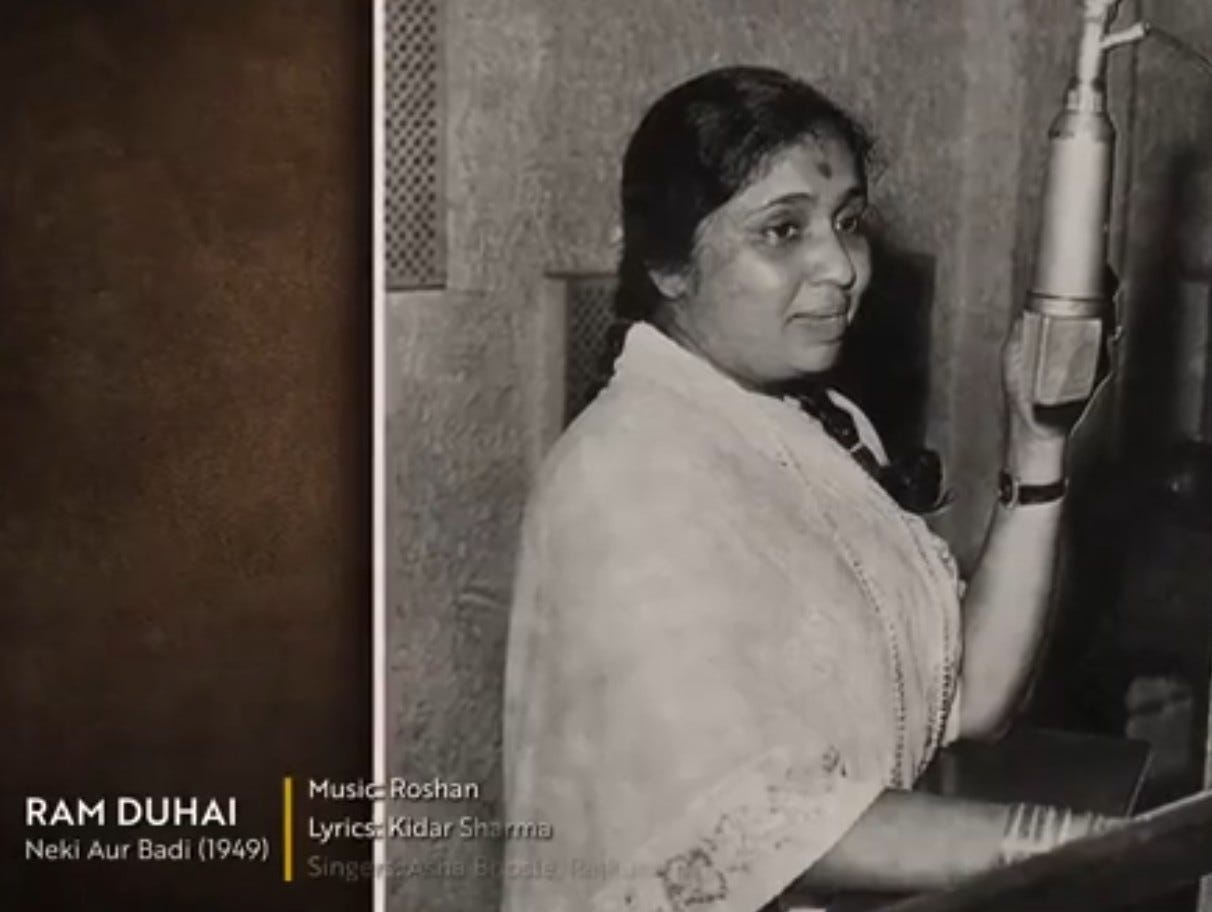
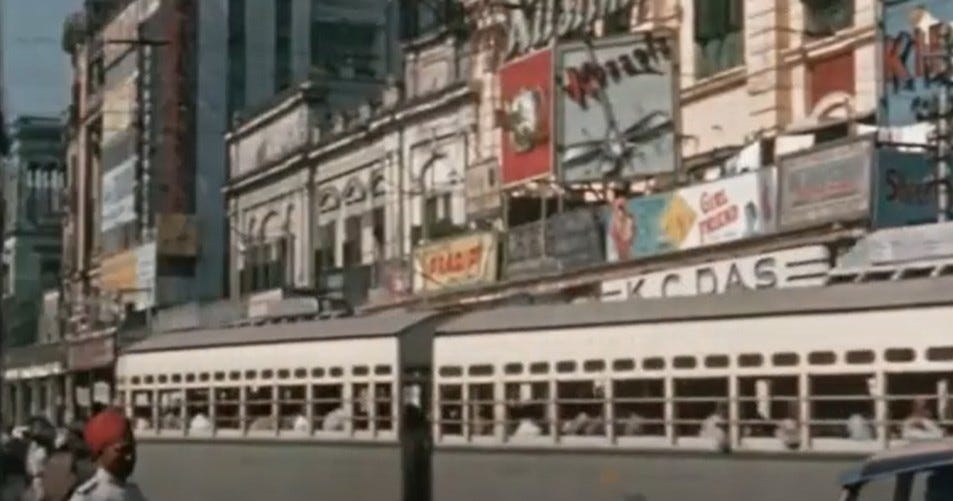
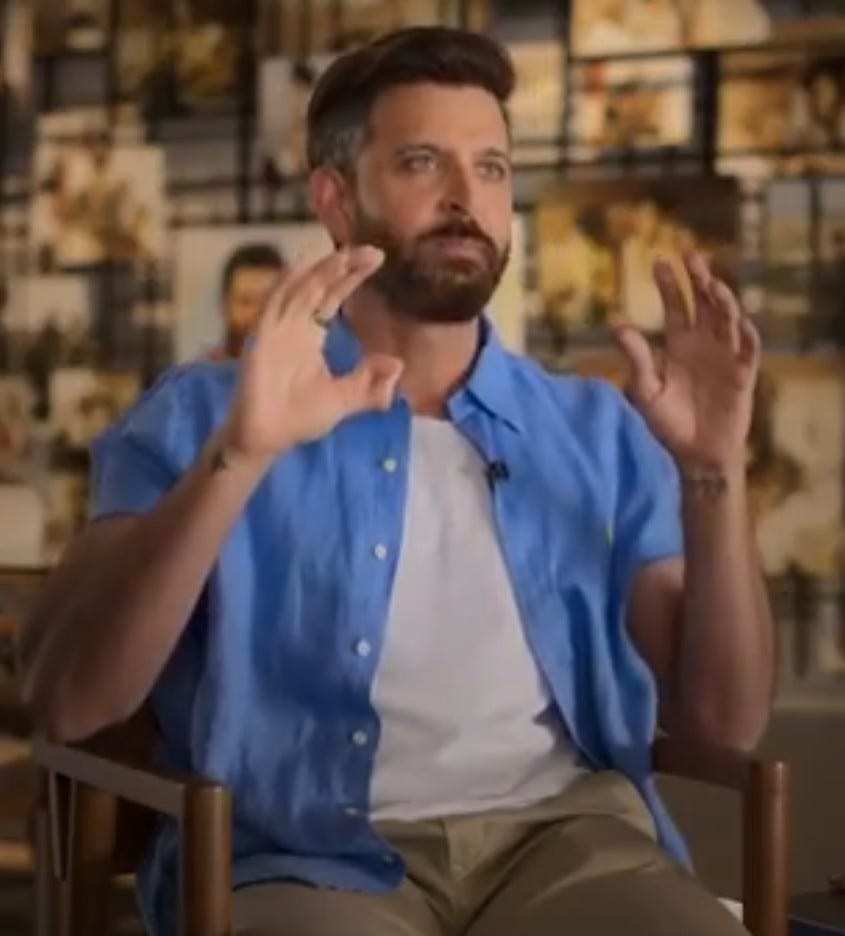
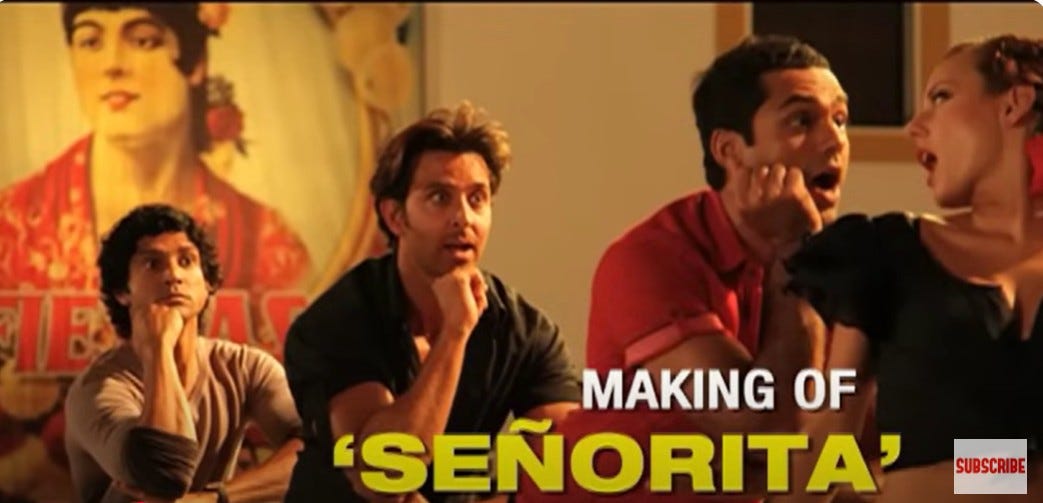
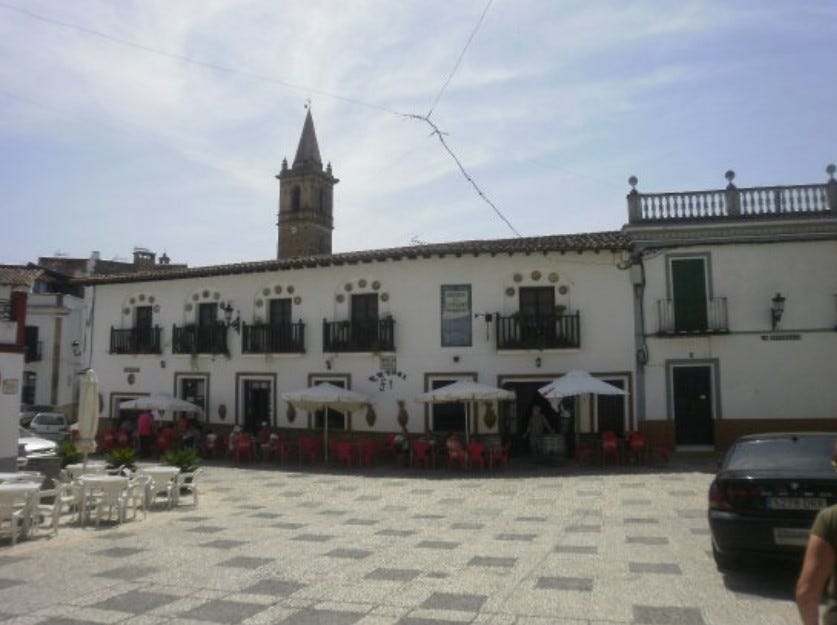
The only Roshan I ever cared for was the music director. Rahen na rahen hum mehka karenge has the fragrance to endure an entire lifetime!
I hadn't realized that the Roshan family had so much to hide, not the least being the bald pate that Rakesh Roshan hid behind a wig for practically all his life.
Liked the muse, especially the Spanish digression.
[In para 3 of Act 2: The Sons, 'Rakesh' must be replaced by 'Rajesh'.,
Singularly illuminating, thank you!